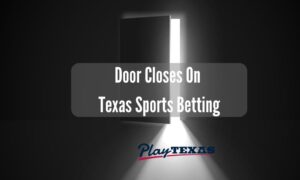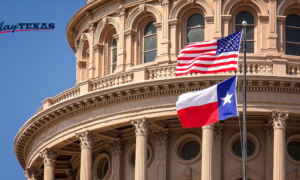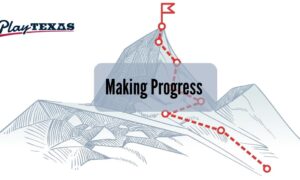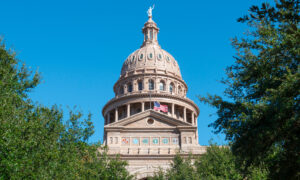
When Ed O’Bannon took the NCAA to court in 2014, NCAA president Mark Emmert struggled on the stand to address the topic of NIL. He claimed that Name Image and Likeness partnerships exploited players, while considering companies like Nike putting logos on jerseys that players wear as “fine.”
Emmert and the NCAA lost that argument, but it still wasn’t until 2021 that the NCAA formally decided to open the doors to NIL partnerships. In the wake of that decision and a number of court cases calling “amateurism” into question, the NCAA has changed.
It’s hard to say what the watershed moment has been, but the floodgates of deregulation are now open. As a result, Emmert is resigning his post. It could very well be the NCAA’s most recent change of policy that nudged him out.
A place in NCAA athletics for sportsbooks
The NCAA met Wednesday, April 27th, to reconsider its policy prohibiting player data sales to sports gambling companies. In this meeting, the Division I Interpretations Committee decided that only data made available to the public could be made available to sports wagering companies.
This data includes historical statistics and in-game microdata. Additionally, it has some non-game-related data, such as student health profiles. As we’ve reported, one of the new products this data will offer bettors is a stable betting line for in-game “microbets.”
Texas is not really in a position to benefit from this data presently. However, the Big 12 conference, heavily represented by Texas teams (UT, Texas Tech, TCU, Baylor, and Houston), certainly will.
Such a partnership can only push the Texas legislature closer to bringing sports betting to the voters.
The MAC raises the question of sports wagering
The impetus for this policy shift can be tied to a rules inquiry made earlier this year by the Mid-American Conference, one of two conferences to announce a player data partnership in the last few months.
The MAC, partnering with London-based Genius Sports, had made a provisional deal requiring sports betting agencies to pay the MAC directly for all data they acquire through Genius Sports.
The reason for the MAC’s rules inquiry was to see if the NCAA would reconsider a key part of its Division I Manual (Section 10.3).
The section states that athletes, university administrators, and conference staffers cannot “provide information to individuals involved in or associated with any type of sports wagering activities.”
Clearly, for the MAC to get in on the oceans of money flowing around sports betting, the NCAA would need to change this policy. And so that’s what the NCAA did.
Profiting off of data partnerships
As more states make a move to legalize online and casino gaming, the MAC stands to profit significantly by selling its data to sports wagering companies. How much of a profit is unknown, but it’s sure to pale in comparison to what the SEC, ACC, BIG 10, and BIG 12 will make when they eventually sign data deals of their own.
The Pac-12, one of the Power Five conferences, is the only other conference with a data deal in place. However, their deal doesn’t presently leave room for selling player data to sportsbooks. That, however, will likely change with the NCAA’s policy shift.
For more context to the financial implications of this deal, in 2021, the National Hockey League signed a 10–year contract with Swiss data firm Sportradar. The deal was priced at $250 million with a provision for a further $90 million in equity to the NHL when Sportradar goes public.
How much bigger is SEC athletics than the NHL? The 2021 SEC championship game received 15.3 million viewers, making it the highest-rated non-bowl game of the year. By comparison, the Stanley Cup Finals averaged 2.5 million viewers.
A few years ago, the MAC championship between Western Michigan and Ohio brought in 1.4 million viewers. Would it be out of line to consider a deal between the SEC and a data firm topping $1 billion? Probably not.
The floodgates have opened
Referencing a recently published report from PlayTexas, the NCAA is being forced to reconsider established positions on amateurism and NIL partnerships. Now they add the sale of data to sportsbooks.
Court cases like the monumental Murphy v. NCAA, which legalized sports gambling at the federal level, and Alston v. NCAA, which removed restrictions on education-related scholarships and implied endorsement for NIL partnerships, shook the NCAA’s foundations of amateurism.
The NCPA (National Collegiate Athletic Association) and the Department of Education filed a Human Rights complaint on behalf of Black athletes. They say Black athletes are particularly disadvantaged by the lack of compensation for their contribution to the most high-profile collegiate sports in the country.
Then there is the growing sports betting and data partnership landscape permeating collegiate sports.
A visible example is this year’s men’s college basketball Final Four. The games captivated their audiences in the Caesar’s Sportsbook Superdome in New Orleans. They stood as the first collegiate games in an arena sponsored by a sports betting company.
Things are changing quickly
The earth is shifting under the NCAA’s feet.
In the past, their response has largely been to back away from conflict. They’re following suit today, mostly conceding ground to sportsbooks and school boosters. They’re adopting a laissez-faire approach to the new money flowing into college sports through NIL deals and legalized gaming.
Emmert’s resignation in the face of these changes makes sense. The NCAA represents something different than it did at the time of O’Bannon v. NCAA. And the shifting continues. Whoever takes Emmert’s place will need to openly embrace these changes.







